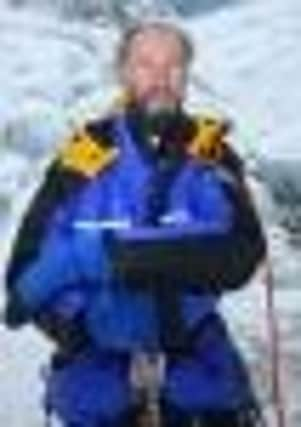Book review: My Heroes: Extraordinary Courage, Exceptional People


To 35,000 people logging on to his posthumously launched website, even the woman-beater, drug taker and murderer Raol Moat made the grade.
Explorer Ranulph Fiennes, whose latest book takes a personal look at what constitutes heroism and documents the lives and the experiences of some of his own heroes, defines the word altogether more tightly. He has, for example, no time for sporting heroes like “the foul-mouthed footballer” Wayne Rooney and “sexy singers who look good, sound good and can obtain heroic (aka superstar) status overnight”. But just as we fear we may be about to begin on a journey through the land of Colonel Blimp, in the same paragraph Fiennes determines he will not include any Victoria Cross winners either.
Advertisement
Hide AdAdvertisement
Hide AdIn reaching this decision Fiennes – best known for his ability to struggle through polar wastes alone, before becoming the oldest climber to reach the summit of Mount Everest – recalls his own bravery award, received in active service as an aide to the Sultan of Oman and concludes, with reference to his diaries at the time, that his actions were prompted more by fear than by courage, in his case “the fear of appearing to be a coward” in front of his men.
Fiennes determines, therefore, that in order to qualify as heroes people must show a resilience of character over a sustained period, face down their own fear and then go on to perform acts of heroism and endurance that leave us lesser mortals in awe of their determination and fortitude. His thoroughly researched and grippingly detailed accounts of the lives of men and women who rose to the challenge in the face of war, terror, riots, disease and against the elements isn’t for the faint-hearted. At one stage, for example, a survivor of Cambodia’s killing fields, describes watching a six-year-old,commanding prisoners to watch and learn, as he bludgeons a pregnant woman with an axe until the child “soldier” keels over with exhaustion.
His stories of raw courage are timeless. In the Crimean War, a British surgeon observed: “The pluck of the soldier no-one has yet truly described. Here they come with a dangling arm or riddled elbow then it’s, ‘Now doctor, be quick if you please, I’m not done so bad, but I can get back and see,’ And many of these brave fellows with a lump of towel wrung out in cold water wrapped round their stumps … crawled back to the rear of the battle.”
The matter-of-fact acceptance of pain is perhaps less of a surprise to Fiennes than it may be to the reader. Before we meet the men who first attempted to north face of the Matterhorn, Fiennes almost nonchalantly describes his own experiences with frostbite. “I once spent three months with severed nerve ends, and grew so desperate to stop the pain that I put the fingers, one by one, in a Black and Decker vice and cut away the dead ends with a fretsaw. The thumb took two days to remove but the result was worth it.”
While Fiennes goes back into the past to cite examples of heroism from the Crimea or the plague-hit Derbyshire village of Eyam in 1665, he also cites many contemporary examples, to which many of which he has a personal connection. This gives the work a keen personal context , but raises different issues.
The heroism of Navy SEAL Marcus Luttrell who survived after being dropped into a Taleban stronghold in Afghanistan is one such case. Defining the nature of his heroism must also pose a moral question. We hear the SEALs calmly debate whether they should kill an innocent goatherd who had accidentally stumbled upon their hideout. On Luttrell’s vote they did not, and as a result were all killed except Luttrell. What, one wonders, is the moral of that story supposed to be? Elsewhere the efforts of some heroes, such as missionary Gladys Aylward, may actually border on evidence of mental illness.
While there exists a proliferation of heroes whose exploits orbit around warfare and war zones, this is to be expected as it is Fiennes’ personal choice and that will be determined by his own experiences. He does, however, acknowledge the existence of heroes who did not kill people or endanger others’ lives. Israel’s nuclear whistle-blower Mordechai Vanunu, Irish journalist Veronica Guerin and Ulster housewife Jean McConville are all mentioned in the introductory passages. Indeed, having set the ball rolling, perhaps the publishers might broaden the subject and invite writers from a contrasting range of life experiences to reveal their own personal heroes.
• My Heroes : Extraordinary Courage, Exceptional People by Ranulph Fiennes. Hodder & Stoughton, 304pp, £20